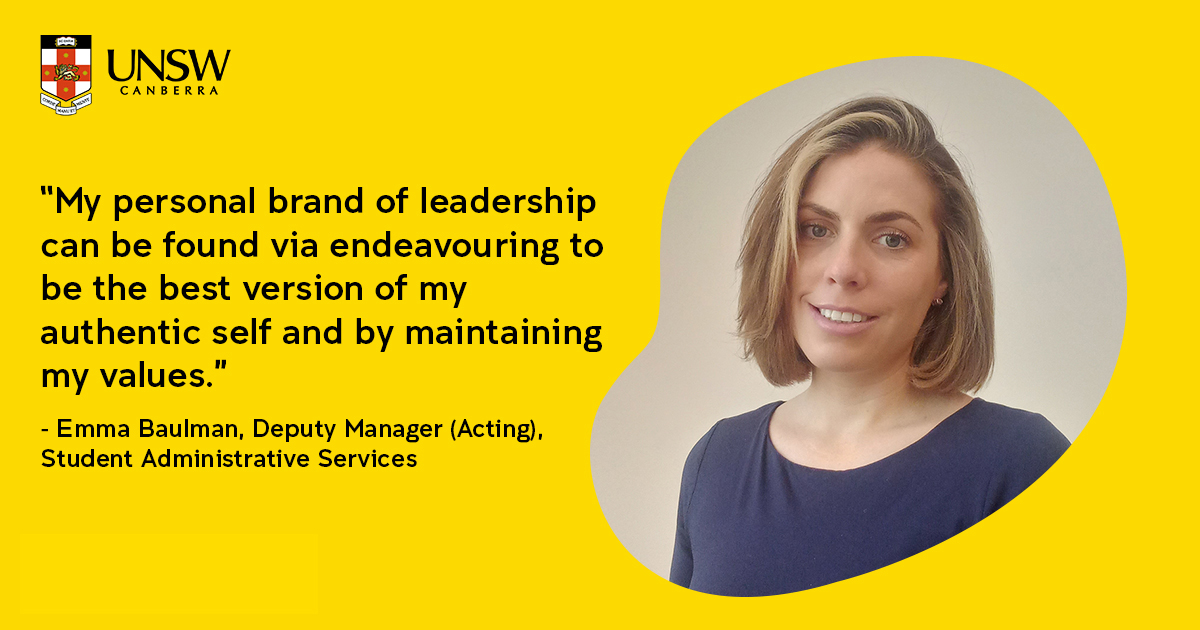International Women’s Day 2023: Emma Baulman
You may recognise Emma Baulman if you’ve dropped by the UNSW Canberra Student Administrative Services. Emma is currently the acting Deputy Manager and has worked in the university sector for more than 10 years.
